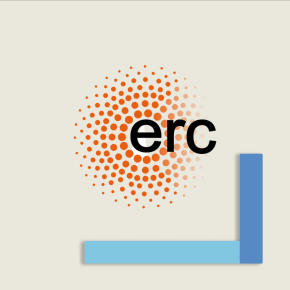
12 ERC Advanced Grants 2021 for the CNRS
The European Research Council (ERC) has just announced the results of the "ERC Advanced grant 2021" call for established researchers. The CNRS is the host institution for 12 grants.
The European Research Council (ERC) will fund 253 researchers this year through the "Advanced" grants scheme, for a total amount of €624 million, as part of the latest call under the Horizon Europe programme.
These grants enable scientists, recognised in their field at the national and international level, to carry out innovative, high-risk projects that open up new avenues in their discipline or in other fields. Each project has a duration of 5 years and a maximum budget of €2.5 million. Aimed at established researchers, these grants require a higher level of experience than the "Starting" (up to €1.5 million and aimed at European project leaders who obtained their phD 2 to 7 years earlier) and "Consolidator" (up to €2 million and 7 to 12 years after their phD) grants.
"By following their scientific curiosity, these senior researchers are pushing the frontiers of our knowledge in a wide range of fields. It’s essential to fund this type of cutting-edge research to keep Europe at the scientific forefront," says Mariya Gabriel, European Commissioner for Innovation, Research, Culture, Education and Youth.
This year, 25% of these grants were awarded to female researchers. In total, 14% of the 1735 projects submitted in 2021 were funded. The grantees will carry out their projects in universities, research centres and companies in 21 European countries, including Germany (61 grants), the UK (45), the Netherlands (27) and France (26).
The final list of successful applicants funded by Horizon Europe remains provisional while the agreements for the association of the UK and Switzerland to that programme are under discussion. As these protocols have not yet been adopted, the UK and Switzerland are still considered "non-associated" to Horizon Europe and, as such, their applicants will only be eligible for funding if the association agreement applies at the time of signing the ERC Advanced grant agreement. Both countries have also offered the possibility to fund their laureates themselves.
List of the 12 grantees whose projects are hosted by the CNRS:
ANAPOLIS (Analog Polariton Simulators) - Jacqueline BLOCH (Centre de Nanosciences et de Nanotechnologies1 ) (INP-INSIS)
GOAT (Groups Of Algebraic Transformations) - Serge CANTAT (Institut de recherche mathématique de Rennes2 ) (INSMI)
ALTER e-GROW (Strategies of 3-D growth in brown algae) - Bénédicte CHARRIER (Laboratoire de Biologie Intégrative des Modèles Marins3 ) (INSB)
n-Dame_Heritage (n-Dimensional analysis and memorisation ecosystem for building cathedrals of knowledge in Heritage Science) - Livio DE LUCA (Modèles et simulations pour l'Architecture et le Patrimoine4 ) (INSHS)
SOFA (Spontaneous interfacial oxidant formation as a key driver for aerosol oxidation) - Christian GEORGE (Institut de Recherches sur la Catalyse et l'Environnement de Lyon5 ) (INC)
Dust2Planets (From Dust to Planets: A Novel Approach to Constrain Dust Growth and the Planet Forming Zone in Disks) - François MENARD (Institut de planétologie et d'astrophysique de Grenoble6 ) (INSU)
ZEOLIghT (Dual challenges in the discovery and sustainability of nanozeolites: controlling defect sites and structural flexibility) - Svetlana MINTOVA (Laboratoire de catalyse et spectrochimie7 ) (INC)
LATEUROPE (Why late earliest occupation of Western Europe?) - Marie- Hélène MONCEL (Histoire naturelle de l'Homme préhistorique8 ) (INEE)
SpeckleCARS (Vibrational speckle tomography microscopy for fast intra-operative cancer tissue histopathology) - Hervé RIGNEAULT (Institut Fresnel9 ) (INSIS)
HUMANFACE (Human Face Identity Categorization: Bridging the Gap between Vision and Social Semantics) - Bruno ROSSION (Centre de recherche en automatique de Nancy10 ) (INS2I)
DOC-PAST (Deciphering the Oxidizing Capacity of the PAST atmosphere) - Joel SAVARINO (Institut des géosciences de l'environnement11 ) (INSU)
NoStaHo (Non-Stationary Non- Homogeneous Turbulence) - John- Christos VASSILICOS (Laboratoire de Mécanique des Fluides de Lille, Kampé de Fériet12 ) (INSIS)
- 1CNRS/Université Paris-Saclay
- 2CNRS/Ecole Normale Supérieure de Rennes/Université Rennes 1/Université Rennes 2
- 3CNRS/Sorbonne Université
- 4CNRS/Ministère de la Culture
- 5CNRS/Université Claude Bernard
- 6CNRS/Université Grenoble Alpes
- 7CNRS/Ecole nationale supérieure d'ingénieurs de Caen/université de Caen Normandie
- 8CNRS/Museum national d'histoire naturelle/Université de Perpignan via Domitia
- 9Aix Marseille Université/CNRS/Ecole Centrale de Marseille
- 10CNRS/Université de Lorraine
- 11CNRS/IRD/Université Grenoble Alpes
- 12Centrale Lille Institut/CNRS/Ecole Nationale Supérieure d'Arts et Métiers/Office National des Études et Recherches Aérospatiales


